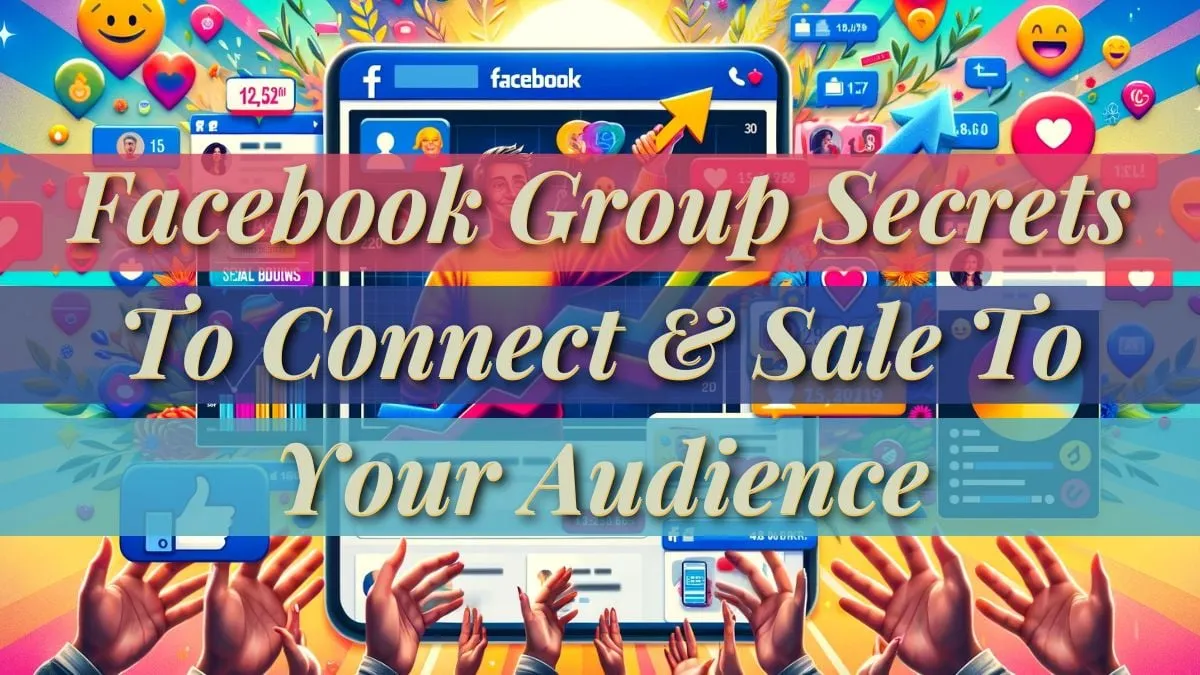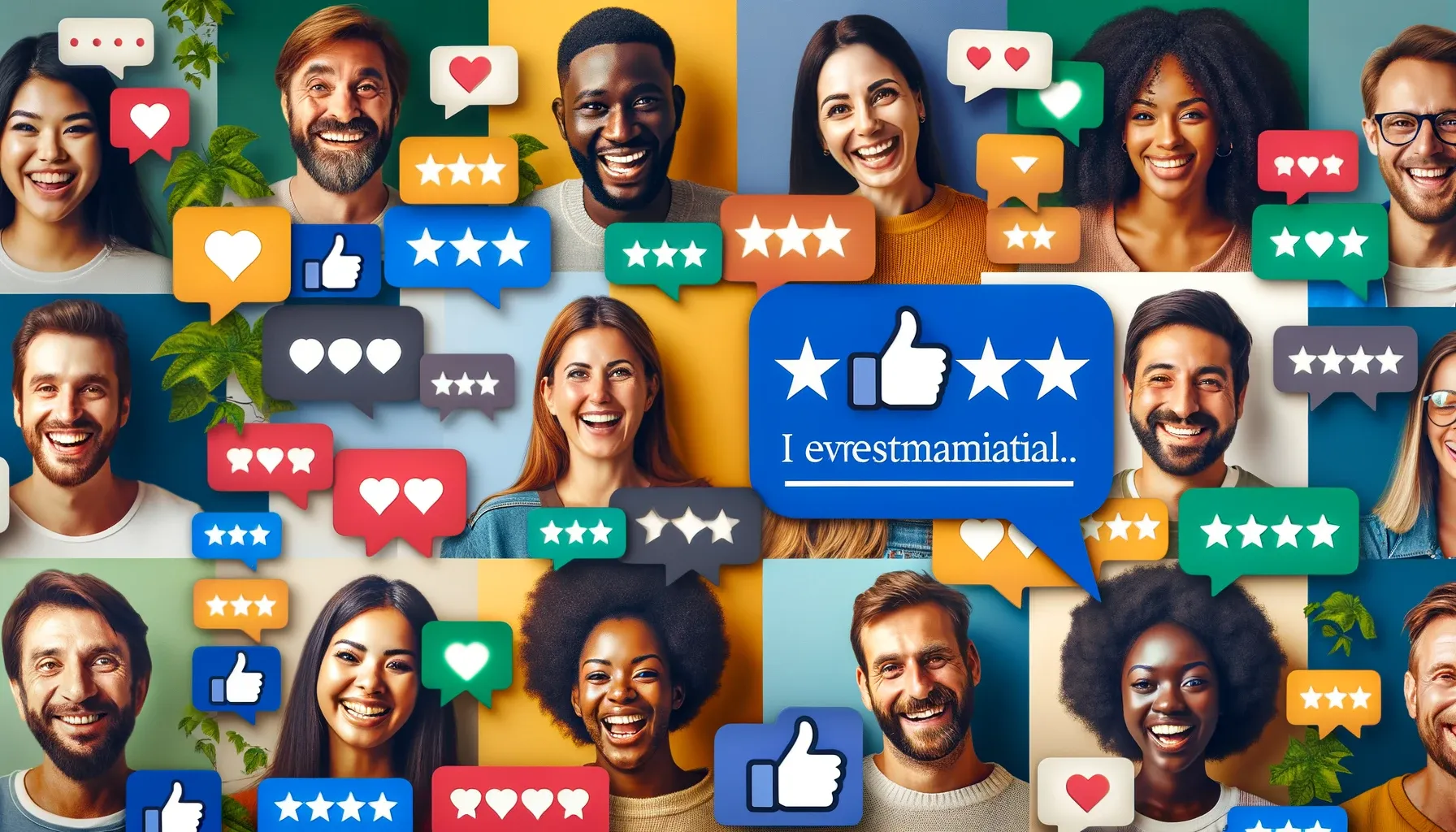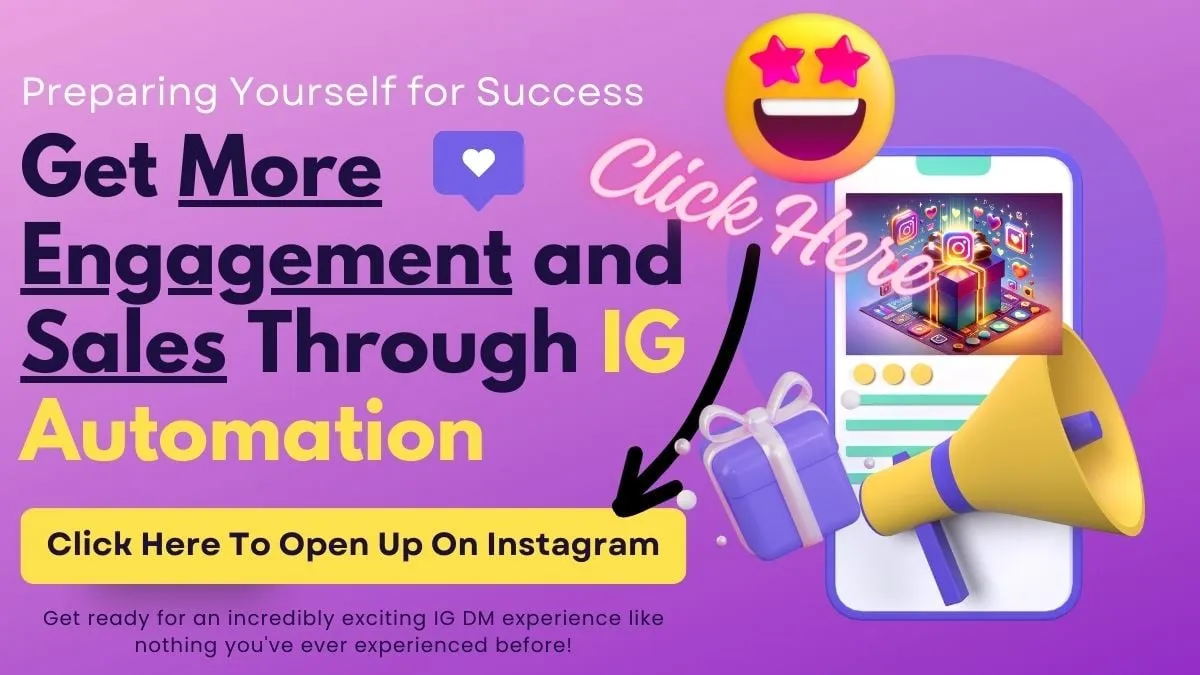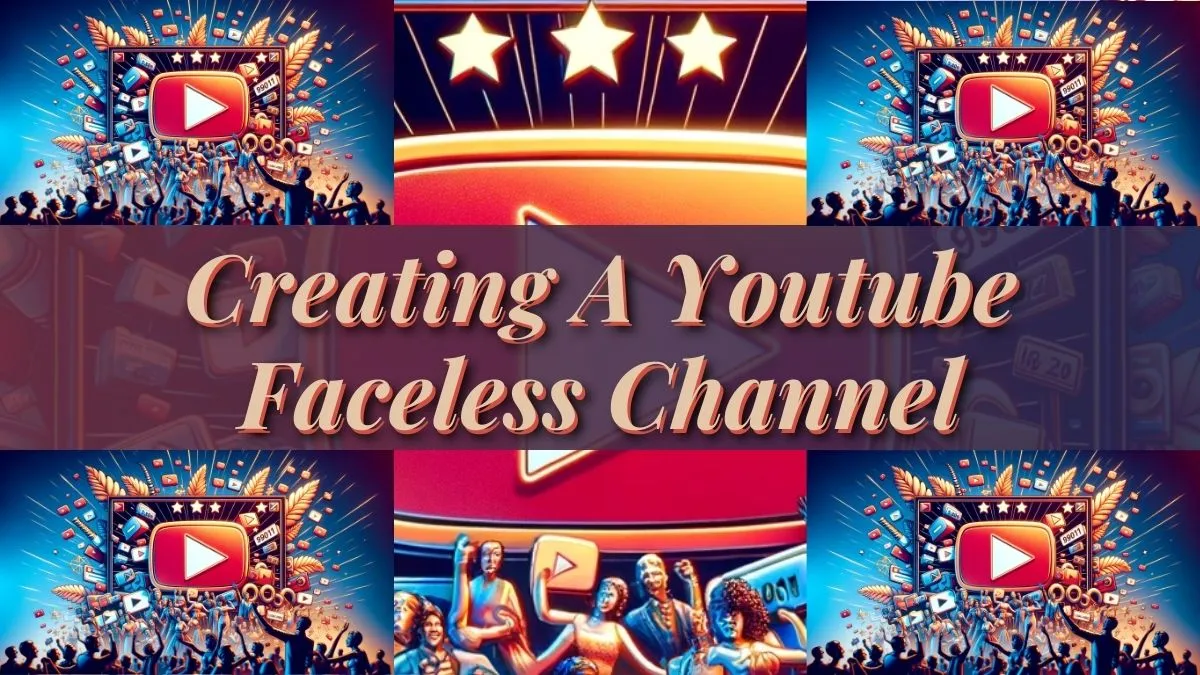Facebook Groups: Transforming Small Business Engagement and Sales

In today’s fast-paced digital landscape, the quest for meaningful connections and community building is more vital than ever, especially for small businesses looking to carve out their niche.
Enter the world of Facebook Groups, an untapped goldmine for entrepreneurs and digital marketers eager to elevate their brand, foster unbreakable customer bonds, and skyrocket their market presence.
Imagine a space where every post sparks a conversation, every question leads to insights, and every member becomes a potential advocate for your brand. This isn't just a dream; it's the reality that Facebook groups offer to small businesses.
In this comprehensive guide, we're not just talking about social media marketing; we're exploring the art of creating thriving online communities that can transform your small business from a mere participant in the digital arena to a leading powerhouse.
Whether you're a seasoned marketer or a budding entrepreneur, understanding the power of Facebook groups can be your game-changer in a world where connection is currency.
So, buckle up as we embark on this journey, unraveling the secrets of Facebook groups. From setting up your group to nurturing a vibrant community, this article is your roadmap to leveraging one of the most powerful tools in the digital marketing arsenal.
Get ready to unlock the potential of Facebook groups and watch as your small business takes flight in the digital cosmos.
Introduction to Facebook Groups for Small Businesses

In the dynamic world of digital marketing, Facebook groups have emerged as a powerful tool for small businesses looking to expand their reach and deepen customer relationships.
Unlike Facebook Pages, which are more about broadcasting a message, Facebook Groups offer a space for two-way interaction, fostering a sense of community and engagement.
This is particularly valuable for entrepreneurs and digital marketers who aim to create a loyal customer base and a platform for direct communication with their audience.
Master the Essentials of Facebook Groups
Facebook groups are essentially online communities where people with shared interests can interact. For a small business, this means a dedicated space to connect with potential customers, share insights, and build brand loyalty.
Unlike Pages, which are public and designed for large-scale broadcasting, Groups can be private, offering a more intimate setting for discussions and engagement.
The Importance of Facebook Groups for Small Business Marketing
For small businesses, Facebook groups are more than just a social tool; they're a strategic asset. They provide a unique opportunity to gather customer feedback, test new ideas, and create a community around your brand.
This direct line to your audience is invaluable for tailoring your offerings and marketing strategies to meet their needs.
How Facebook Groups Differ from Pages and Personal Profiles
While pages are ideal for announcements and broad messaging and personal profiles are for individual networking, Facebook groups offer a blend of both.
They allow businesses to create a community around their brand where they can engage in meaningful conversations, offer exclusive content, and build a loyal following.
Setting Up Your Small Business Facebook Group

Creating a Facebook group for your small business is a strategic move in the digital marketing landscape. It's a space where you can cultivate a community, share insights, and directly engage with your audience.
The setup process is straightforward, but it's important to approach it with a clear strategy to maximize its potential.
Step-by-Step Guide to Creating a Facebook Group
To start, navigate to the 'Groups' section on Facebook and click 'Create Group.' Choose a name that reflects your brand and the community you want to build.
It's crucial to select the right privacy settings; 'Closed' groups are often recommended for businesses, as they offer a balance of accessibility and privacy.
Fill in the details, add a group description that clearly states the group's purpose, and customize your group with a cover photo that aligns with your brand identity.
Best Practices for Group Settings and Privacy Options
When setting up your group, consider the member approval process. You can set questions for potential members to answer, helping you filter and understand your audience better.
Also, decide on the posting permissions—whether you want members to post freely or have posts approved by admins. This control can help maintain the quality and relevance of the content shared in the group.
Customizing Your Group for Maximum Engagement
Customization is key to making your group stand out. Utilize features such as pinned posts to showcase crucial announcements or resources. Create a content calendar to maintain a consistent flow of engaging and valuable posts.
Regular features like weekly Q&A sessions, live videos, or themed discussion days can keep the group active and engaging.
Strategies for Growing Your Facebook Group Community

Once your Facebook group is set up, the next crucial step is to grow your community. This involves attracting the right members and fostering engagement.
A thriving group not only boosts your brand’s visibility but also creates a loyal customer base that can drive business growth.
Effective Ways to Attract Members to Your Group
To grow your group, start by inviting your existing customers and contacts. Encourage them to invite others who might be interested. Utilize your other social media platforms, website, and ***email newsletters*** to promote the group.
Highlight the exclusive content, discussions, and community benefits that members will gain by joining.
Leveraging Existing Networks to Build Your Community
Don’t overlook the power of your existing networks. Collaborate with influencers, industry experts, or other businesses to cross-promote your group.
Participate in similar groups and contribute valuable insights to attract members who are interested in your niche. Networking within these communities can significantly boost your group's visibility.
Collaborating with Other Groups and Pages
Collaboration can be a powerful tool for growth. Partner with complementary groups and pages for joint events, such as webinars or live Q&A sessions.
This not only brings new members to your group but also adds value to your existing community. Ensure these collaborations align with your brand and offer genuine value to both communities.
Content Creation Tips for Engaging Your Group Members

Creating compelling content is key to keeping your Facebook group active and engaging. The content you share should resonate with your members, encouraging interaction and fostering a sense of community.
Here are some tips to help you create content that captivates your audience.
Types of Content That Resonate with Facebook Group Members
Diverse content types can keep your group interesting. Share behind-the-scenes glimpses of your business, industry insights, and helpful tips.
Interactive content like polls, quizzes, and questions can spark conversations. User-generated content, such as member stories or experiences with your products, can also be very engaging.
Scheduling and Consistency in Posting
Consistency is crucial to maintaining member interest. Develop a content calendar to schedule posts regularly. This ensures that your group remains active and gives members a reason to check in frequently.
Tools like Facebook’s scheduling feature can help you manage this effectively.
Encouraging Member Participation and Interaction
Encourage members to share their thoughts and experiences. Create posts that invite opinions, advice, or recommendations.
Recognizing active members with shoutouts or featuring their content can also boost engagement. Remember, the goal is to create a two-way conversation, not just to broadcast information.
Utilizing Facebook Groups for Business Promotions

Facebook groups offer a unique platform for promoting your products or services. However, it's important to approach promotions in a way that adds value to the group and doesn't overwhelm or annoy your members.
Here’s how you can use your Facebook group for effective business promotions:
How to Promote Your Products or Services Without Spamming
The key to successful promotion in Facebook groups is subtlety and value. Instead of direct selling, focus on sharing information that benefits your members.
For instance, offer exclusive discounts, early access to new products, or valuable insights related to your industry. This approach not only promotes your products but also enriches your group's content.
Organizing Contests and Giveaways in Your Group
Contests and giveaways are excellent for engaging members and promoting your business. They encourage participation and can quickly increase the visibility of your products or services.
Ensure that these activities are relevant to your group's theme and offer prizes that your members will value.
Collaborating with Influencers and Brand Ambassadors
Partnering with influencers and brand ambassadors who resonate with your target audience can amplify your promotions.
They can introduce your products to a wider audience in an authentic and engaging manner. Ensure that these partnerships align with your brand values and the interests of your group members.
Managing and Moderating Your Facebook Group

Effective management and moderation are crucial for maintaining a healthy and vibrant Facebook Group.
As your group grows, it becomes more important to manage interactions and ensure that the group remains a positive space for all members. Here are some strategies for effective group management.
Establishing Group Rules and Guidelines
Clear rules and guidelines are the backbone of a well-managed Facebook group. Establish rules regarding the types of posts allowed, the tone of discussions, and the handling of conflicts.
Make these rules visible to all members and ensure they are enforced consistently. This helps in maintaining order and respect within the group.
Handling Conflicts and Maintaining a Positive Environment
Conflicts are inevitable in any community. When they arise, address them promptly and fairly. Encourage members to resolve disputes amicably.
If necessary, intervene as a mediator.
Always aim to maintain a positive and respectful environment, as this encourages more members to participate actively and positively.
Role of Admins and Moderators in Group Management
Admins and moderators play a key role in the day-to-day management of the group. They should be active, approachable, and fair in their actions.
It’s beneficial to have a team of moderators with diverse perspectives to manage the group effectively. Regularly review the group's activities with your team, discuss challenges, and brainstorm solutions.
Measuring the Success of Your Facebook Group

To ensure that your Facebook group is effectively contributing to your business goals, it's important to measure its success.
This involves tracking various metrics to understand member engagement, growth, and the overall health of the community. Here are key aspects to consider when assessing the success of your Facebook group.
Key Metrics to Track for Group Engagement and Growth
Engagement metrics such as the number of active members, posts, comments, and reactions give insights into how involved your members are.
Growth metrics like the increase in member count and the rate of new member requests indicate the group's attractiveness. Also, monitor the frequency of member posts and the diversity of contributors to understand the depth of engagement.
Tools and Techniques for Analyzing Group Performance
Facebook provides built-in analytics tools for group admins, offering valuable data on member activity and engagement trends. Utilize these tools to track key metrics over time.
Additionally, conducting regular surveys within the group can provide qualitative insights into member satisfaction and areas for improvement.
Adjusting Strategies Based on Analytics Insights
Use the data and feedback gathered to refine your group strategy. If certain types of content are more engaging, focus on producing more of that content.
If member growth is slowing, consider new ways to promote the group or engage potential members. Regularly reviewing and adjusting your strategy based on analytics will help keep your group dynamic and growing.
Case Studies: Successful Facebook Groups for Small Businesses

Examining real-life examples of successful Facebook groups can provide valuable insights and inspiration for small business owners.
These case studies highlight the strategies and practices that have helped businesses leverage Facebook groups to build communities, enhance brand loyalty, and drive growth.
Examples of Small Businesses Excelling with Facebook Groups
Look at businesses that have effectively used Facebook groups to connect with their audience.
For instance, a local bakery might use its group to share daily specials and gather feedback on new recipes, or a fitness trainer might offer exclusive workout tips and live Q&A sessions in their group.
These examples demonstrate how businesses can create a dedicated space for customer interaction and brand building.
Lessons Learned from Successful Group Strategies
By analyzing these case studies, we can extract valuable lessons such as the importance of consistent engagement, personalized content, and listening to the community.
Successful groups often have a clear focus, whether it’s providing support, sharing knowledge, or offering exclusive benefits to members.
Adapting These Strategies for Your Business
Consider how you can apply these lessons to your group. Tailor your content and engagement strategies to fit your brand and audience.
For example, if your business is product-based, you might focus on sharing usage tips and customer stories. If it's service-oriented, offering advice and industry insights might be more appropriate.
Future Trends in Facebook Groups for Community Building

As digital marketing evolves, so do the features and uses of platforms like Facebook groups. Staying ahead of these trends is crucial for small businesses looking to leverage these communities for growth and engagement.
Here’s a look at some emerging trends in Facebook groups that could shape the future of online community building.
Emerging Features of Facebook Groups to Watch
Facebook continually updates its platform, adding new features that enhance the user experience and engagement.
For instance, recent updates have included more robust analytics tools for group admins, improved post-scheduling capabilities, and enhanced moderation tools.
Keeping an eye on these updates can help you utilize Facebook groups more effectively for your business.
Integrating Facebook Groups with Other Digital Marketing Channels
The integration of Facebook groups with other marketing channels is becoming increasingly seamless.
For example, linking your group with your Facebook page, ***incorporating email marketing***, or connecting your group to your ***e-commerce platform*** are ways to create a cohesive marketing strategy.
This integration allows for a more unified brand experience and can drive cross-channel engagement.
Predictions for the Evolution of Online Communities
The future of online communities likely includes a greater emphasis on personalization and member-driven content.
We might see more AI-driven recommendations within groups, helping members discover more relevant content and discussions.
Additionally, the rise of virtual and augmented reality could offer new ways for group members to interact and engage with content.
Conclusion: Harnessing the Power of Facebook Groups for Business Growth
In the realm of digital marketing, Facebook groups stand out as a versatile and powerful tool for small businesses. They offer a unique opportunity to build a community, engage directly with customers, and enhance brand loyalty.
As we've explored, the effective use of Facebook groups involves thoughtful setup, strategic content creation, active community management, and staying abreast of emerging trends.
Facebook groups allow businesses to create a space where they can connect more personally with their audience, gather valuable feedback, and foster a sense of belonging among members.
This direct line of communication is invaluable for tailoring products and services to meet customer needs and preferences.
Moreover, the ability to integrate Facebook groups with other marketing channels amplifies their effectiveness.
By creating a cohesive strategy that includes email marketing, social media, and other digital platforms, businesses can provide a unified brand experience.
The future of Facebook groups is bright, with ongoing updates and new features continually enhancing their potential as a marketing tool.




